University Discussion: Affordable Healthcare Act Repeal and Analysis
VerifiedAdded on 2022/08/20
|7
|1156
|12
Discussion Board Post
AI Summary
This assignment focuses on a discussion concerning the Affordable Care Act (ACA) and its potential repeal, examining the benefits and economic considerations involved. The student's work begins with an introduction outlining the core issues and then delves into the potential advantages of repealing the ACA, particularly for private insurance companies and employers, while also considering the impact of legislator re-election on these decisions. The assignment analyzes the political implications and the cost-benefit analyses that legislators undertake when considering changes to the ACA. In the student's response to the discussion, they emphasize the importance of considering the impact of ACA repeal or reform on vulnerable populations, advocating for federal reforms to ensure affordable healthcare resources. The second student's response further suggests that enhancing the quality and quantity of the public health workforce is essential to reduce prevalent healthcare disparities. The student underscores the need to redirect federal funds towards recruitment, training, and capacity-building within the public health workforce, particularly in rural and remote areas. The assignment highlights the importance of analyzing the ACA repeal and reform to make informed decisions. The assignment is contributed to Desklib, a platform providing AI-based study tools for students.
1 out of 7
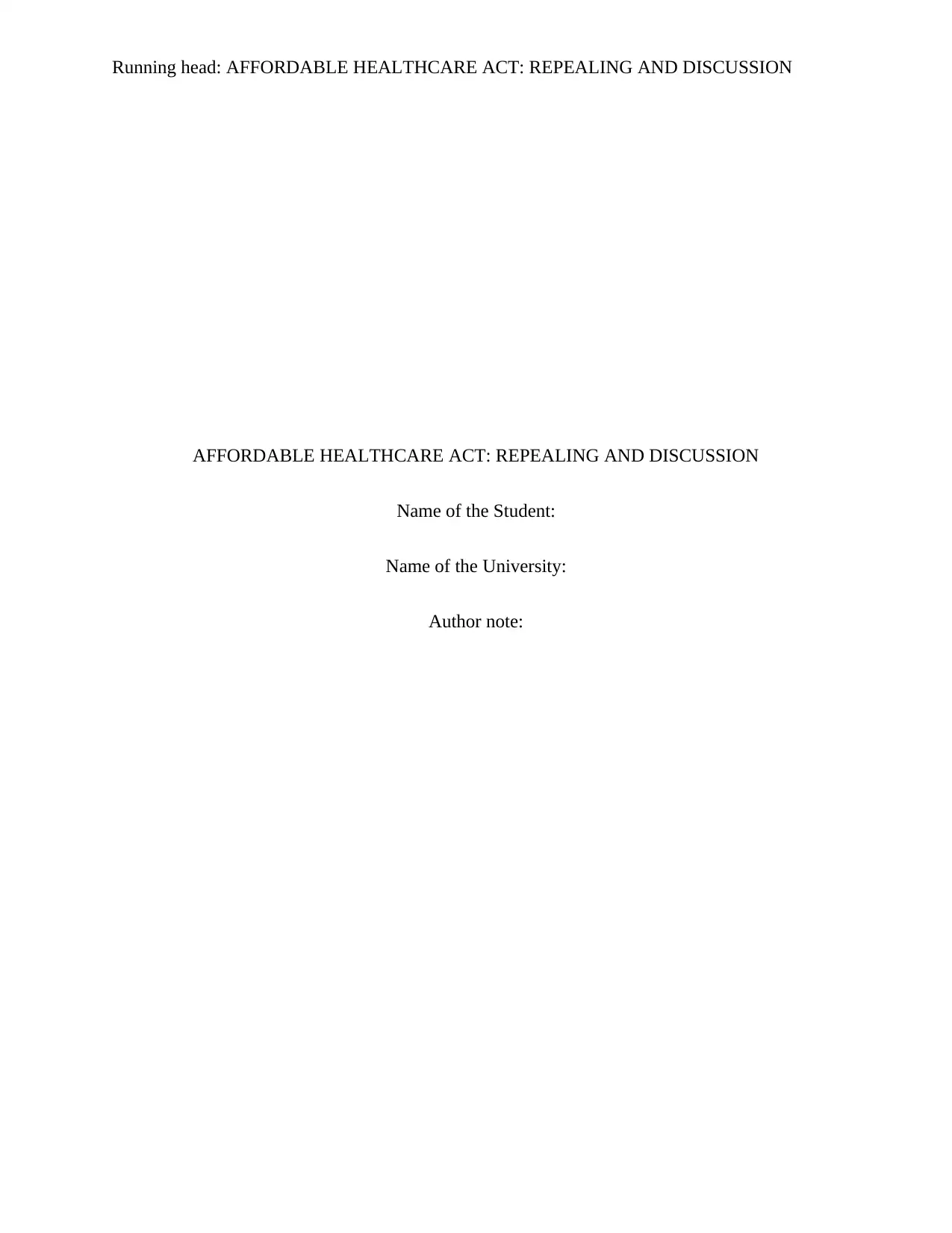
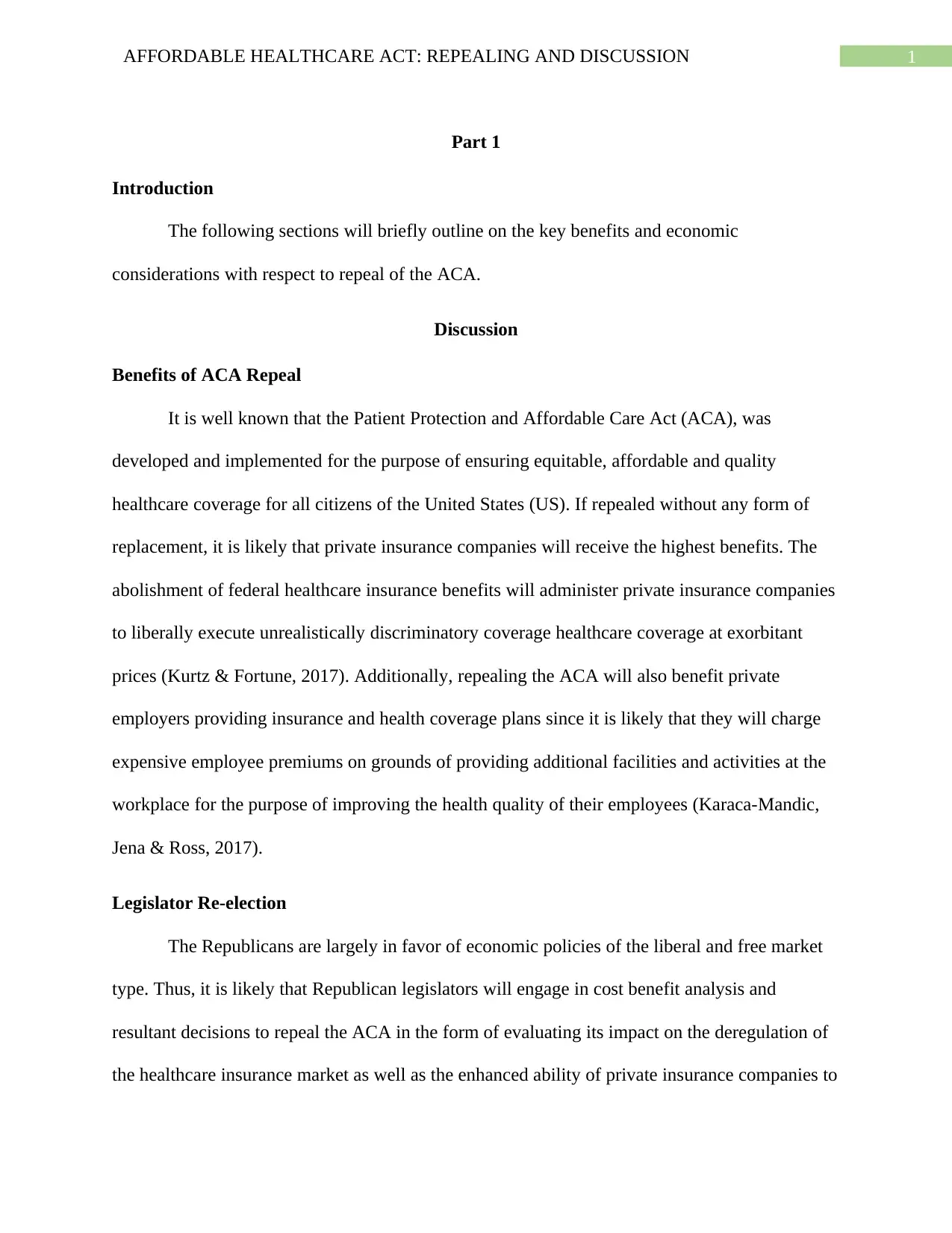
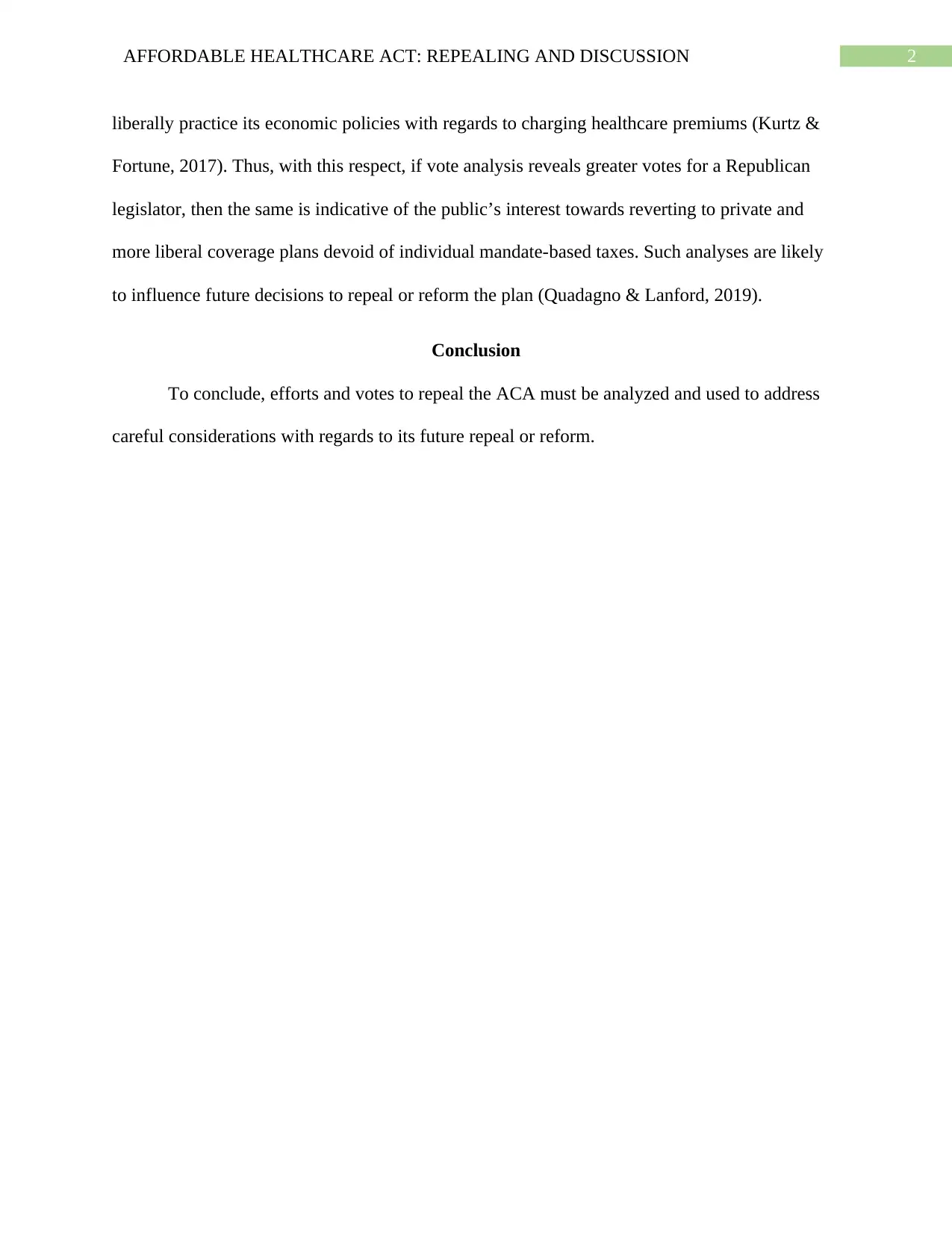

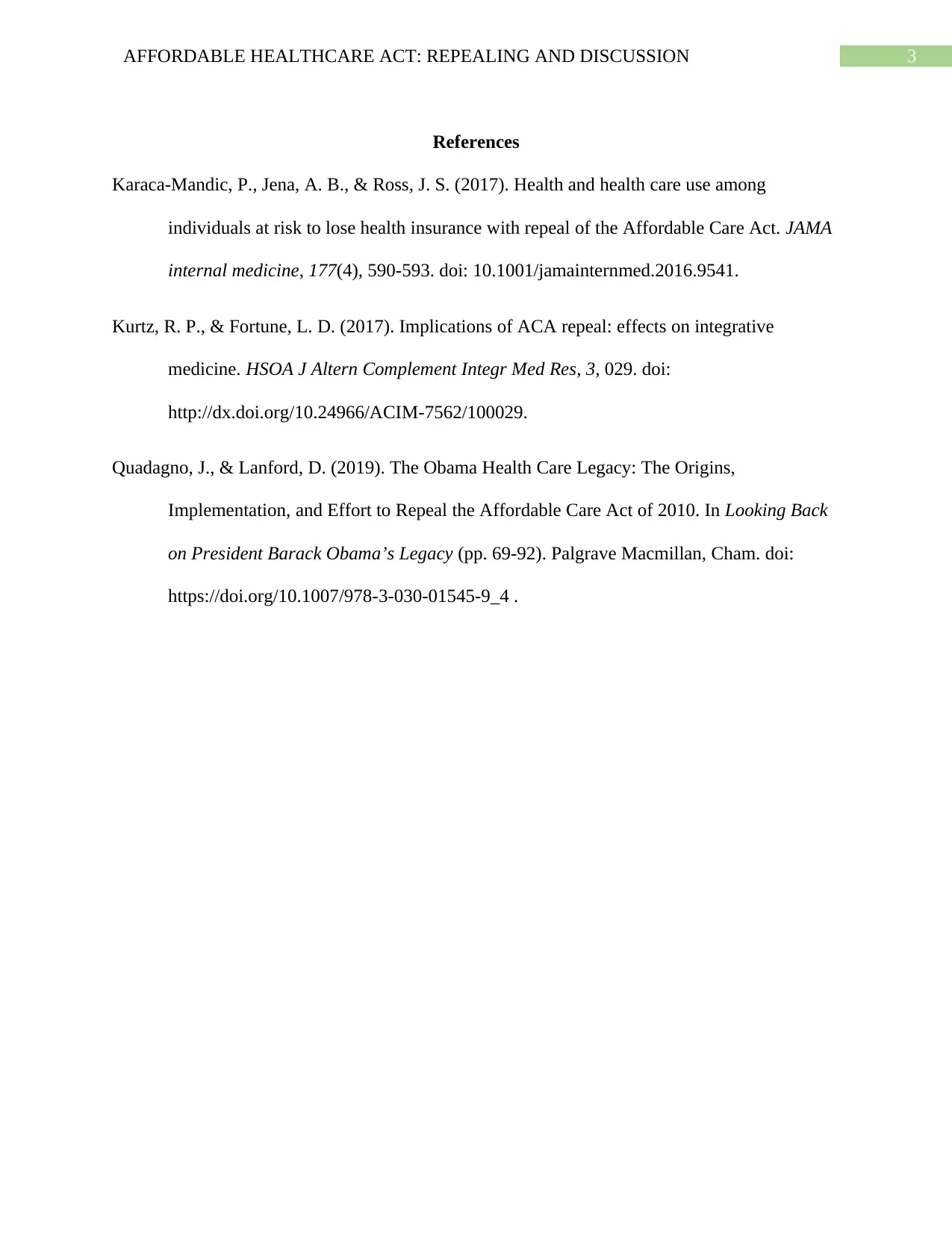
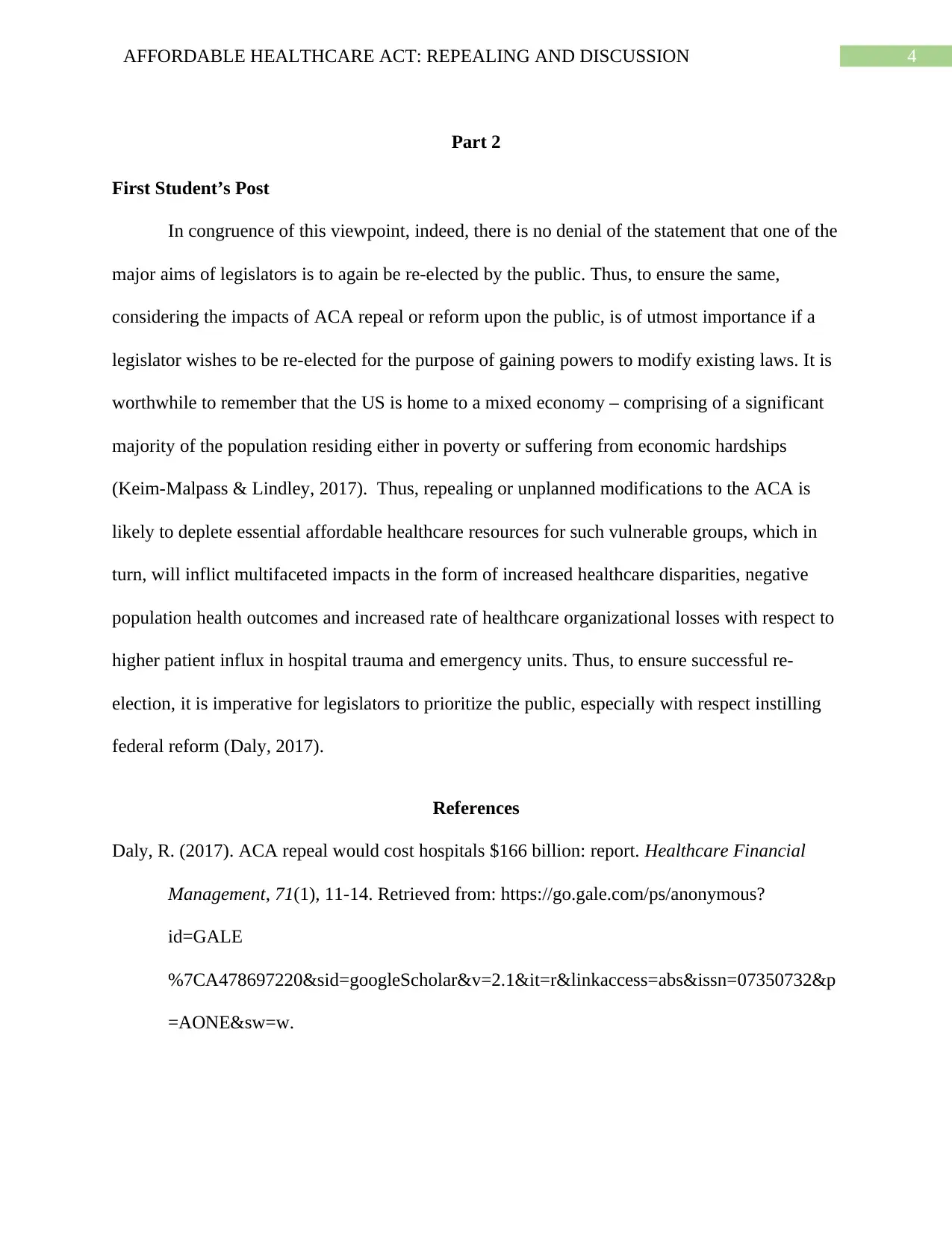
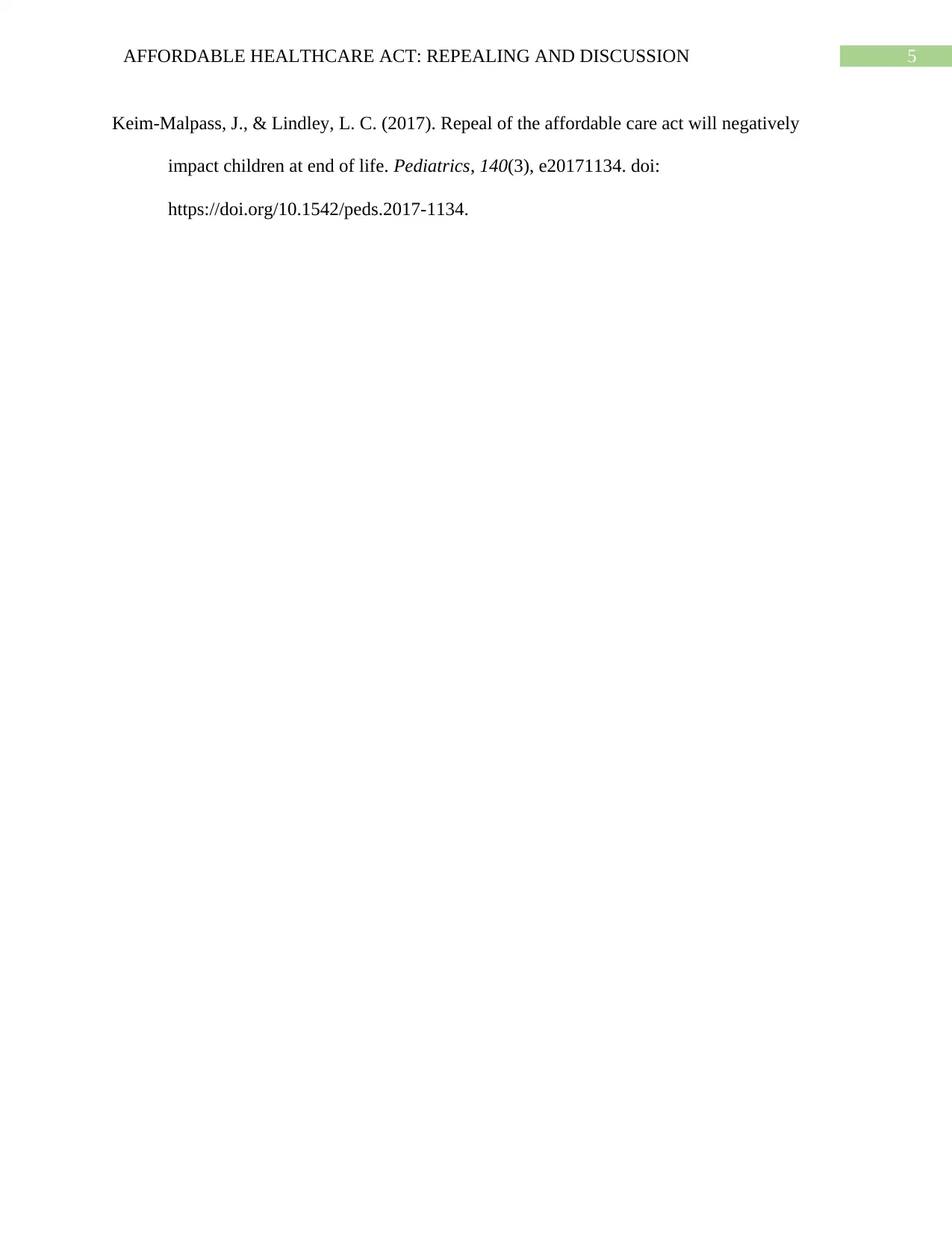
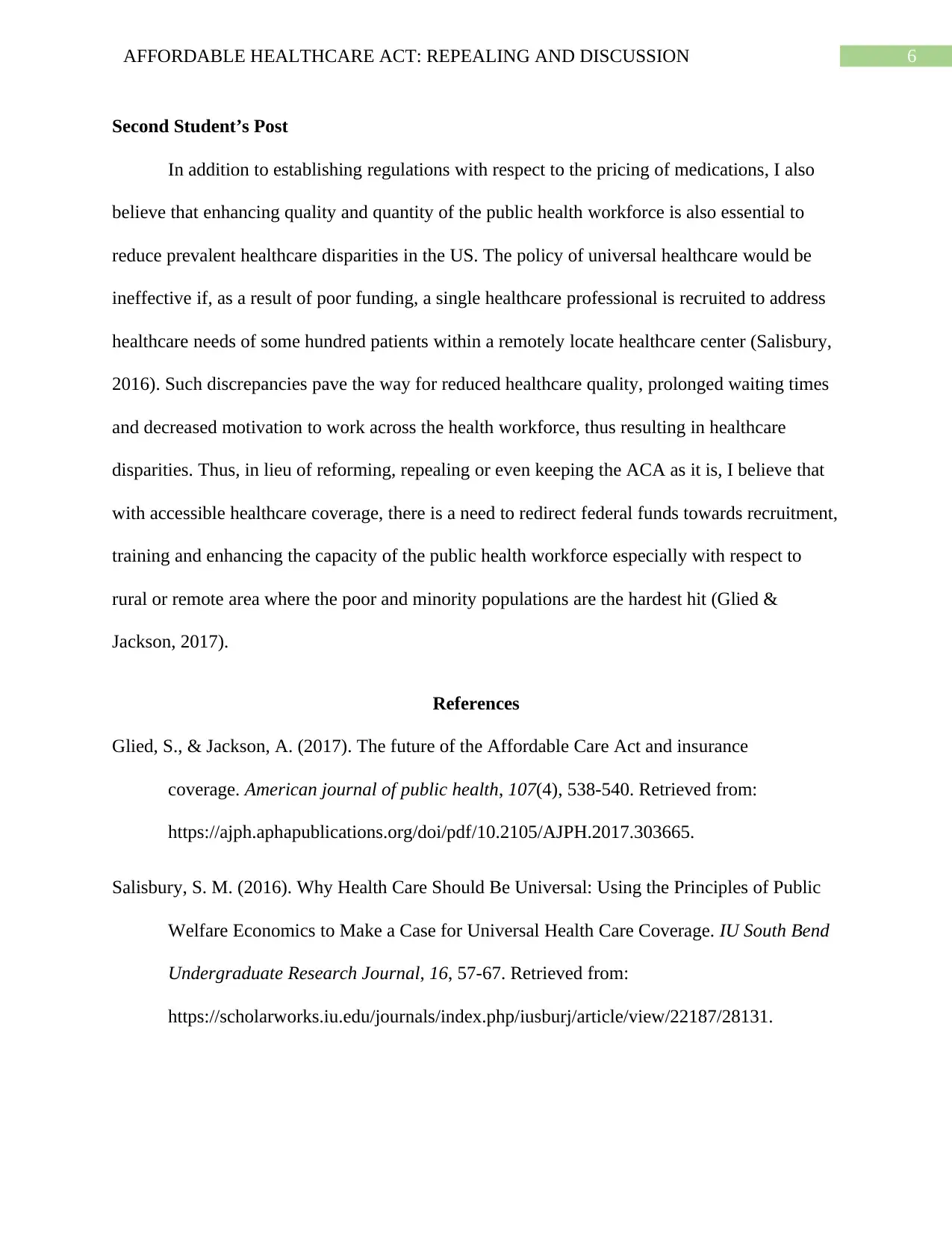






![[object Object]](/_next/static/media/star-bottom.7253800d.svg)